This post is translated by DeepL and edited by me.
We are at the end of our Rusian adventure, only the last section of the trans-Siberian railway from Irkutsk to Vladivostok stood before us since our stay at Lake Baikal.
Irkutsk – Vladivostok
The trip to Vladivostok would take two final trips on the trans siberian train. One short trip to Chita, where we stayed overnight, and a final trip from there to Vladivostok, which would take 60 hours. Since we became more and more open through travelling and we also overcame our fears of the sometimes very grim faces in Russia, we were mainly busy during these final trips talking to our neighbours, or at least trying to.
Mirjam spent a few hours playing with a ten year old boy who had been parading the carriage looking to talk to other people constantly, Mirjam showed him her puzzle book and he was immediately engaged.
We talked for a while with two guys our age about programming through Google Translate. Finally we met a guy caled Yuri and spent the rest of the trip with him playing cards and Yahtzee, and talking. He had very good English which was a pleasant change for us. But it wasn’t so good for us when Yuri asked us what we thought of Putin in the full train. We were asked this question three more times on the same train journey.
Of course we also went out for drinks in the train restaurant and got to know some Finnish guys with whom we spent two evenings, hopefully we can accept their offer and visit them in the north of Finland.
Vladivostok
After 12’800 km we finally arrived in Vladivostok – our last destination in Russia – and we did everything we will miss in Russia. On the last day we decided to visit an island just outside of Vladivostok called Russkiy Island, where we met Yusak from Yokohama, Japan. Funnily enough he was getting the same flight as us to Tokyo the next day
What we thought of Russia
The People
Hospitality
Russian people are certainly a tough nut to crack. When you check into a hostel, buy a ticket or go shopping, you are rarely welcomed with a smile and open arms. Most of the time they don’t show emotions, which makes it difficult to know if your doing something wrong or not. So over time it can be a bit exhausting and frustrating to get information. But once you have broken through the surface, they are very nice people and are very interested. Russians also like to share food and drinks with others, especially on the train.
English
Once you leave Moscow, most people don’t speak English anymore. From then on you have to talk with your hands and feet and Google Translator, it’s definitely worth learning the alphabet because at least then you can read.
Accomodation
We spent most of our time in hostels or guest houses, both options are very cheap and we rarely paid more than ten francs per night. The cheap nights were around four francs per night.
It is very important to always take off your shoes before entering a hostel or guesthouse. Most of the time there are flip flops you can wear at the entrance. If you forget to take off your shoes, the check-in is even more grim than usual. We also noticed that the bed sheets are always a bit too short, unfortunately we don’t know why, but for some reason the bed seets are rarely long enough in Russian hostels.
Accommodation in Russia is mostly very clean and the kitchens are always well equipped. In many hostels, locals live there because it is cheaper for them than renting an apartment. We found very few tourists in the hostels, but we were also there during the off season.
Food and Drink
Russian food has many influences from different cultures, and is certainly influenced by Asian countries such as Mongolia and China.
Pelmeni
Pelmeni are filled dumplings, there are different variations but mainly they are filled with potatoe and onion r mince. Pelmeni are always served with sour cream and are available in different sizes. We both liked the dish very much and had it countless times.
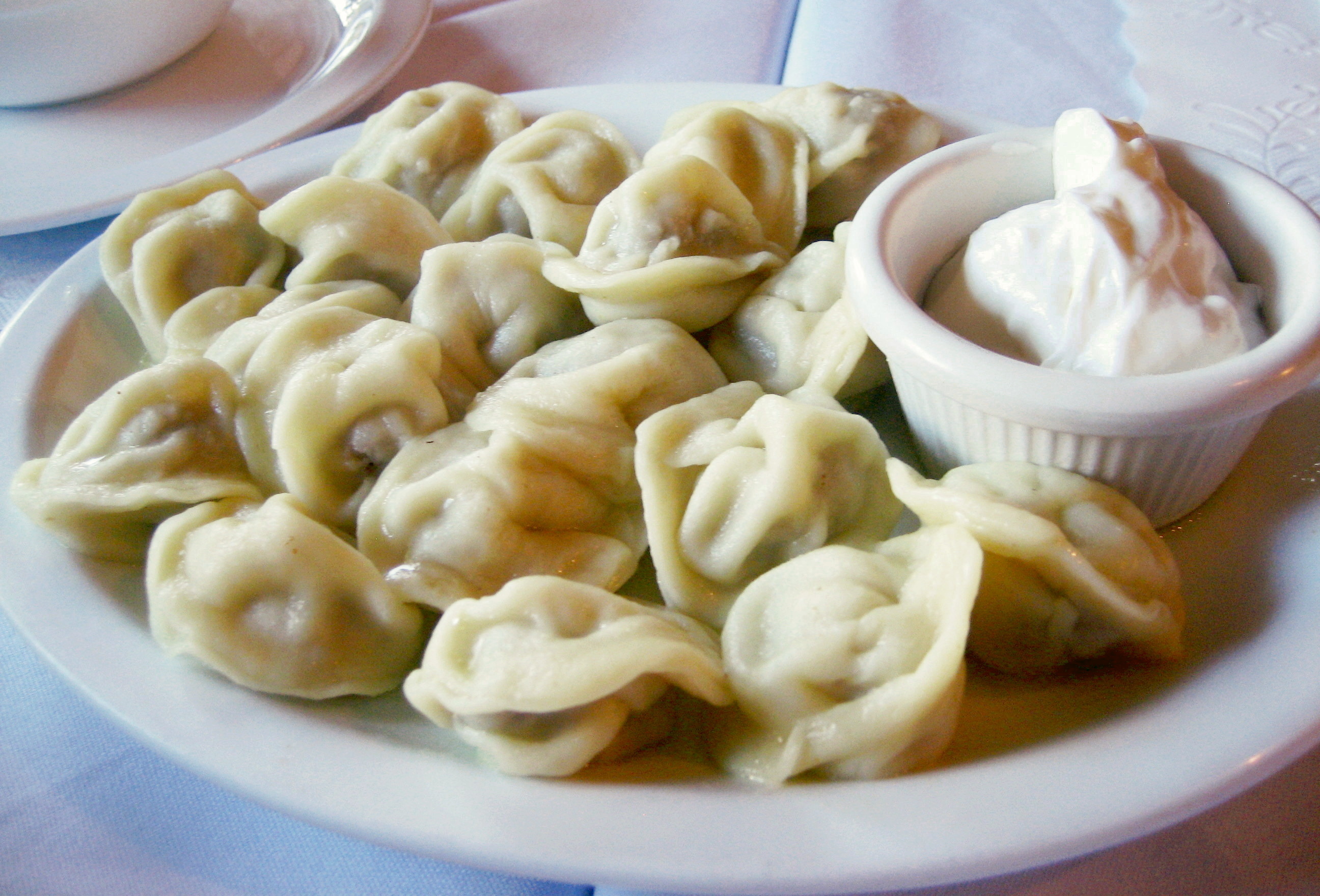
Borscht
Borscht is a soup consisting of beetroot, beef and white cabbage. You can get borscht everywhere and every Stovolaya has the soup on offer. Mirjam wasn’t a huge fan, but I loved it.
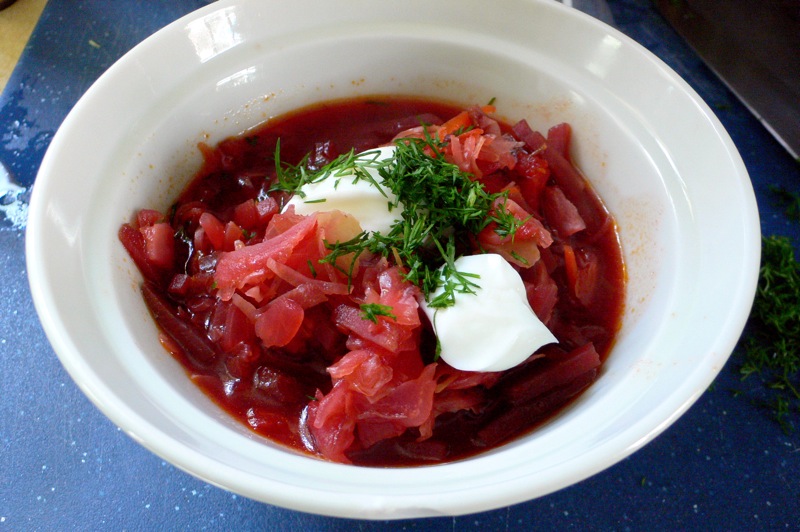
Buck Wheat
Buckwheat is served everywhere, we both didn’t like buckwheat so much, it was quite boring and dry. But it is a very important crop because it grows in difficult conditions.

Stovolaya
Stovolayas are throwbacks to the old soviet style canteens that still are very popular today. You can find them everywhere and they are incredibly cheap. They all stick to a reasonable standard, some are beter than others, but always expect wholesome cheap Russian cuisine.

Alcohol
Rusia is most famous for its Vodka, but recently has also seen a rise in popularity of craft beer, everywhere there are small bars selling craft beer and these bars are always very well frequented. A pint of craft beer will set you back around 3 CHF and a normal lager is between one and two francs. We only drank vodka once with Russians, there we learned that you drink vodka pure but afterwards you drink some fruit juice. Vodka doesn’t seem to be as popular with the younger men anymore and most of them drink beer.
Summary
Russia is a very exciting country, the nature is beautiful and the proportions are gigantic. Russians are generally very friendly and very interested in tourists, often you don’t feel welcome but we think that this is just not the way Russians show emotions. Will we travel to Russia again? Maybe, it would be nice to experience Lake Baikal in winter.


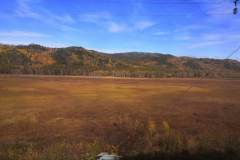
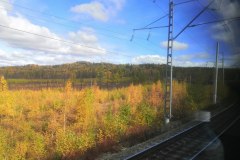
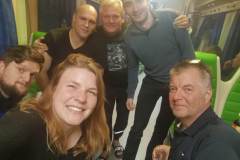
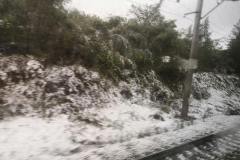
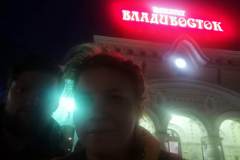



Just read your Russian synopsis… very good description I would say, obviously they are quite friendly once you know how to approach them. Keep on having fun & exploring 👍❤️